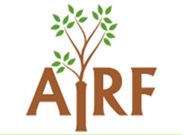The Agricultural Innovation Research Foundation (AIRF) would like to introduce to you training on “Smart Strategy Execution (SSE)”, a project management and intervention that involves prioritization, short term planning execution and frequent reviews.
The short term planning as part of long term strategic plan, makes it easier to adapt to changes when needed, while delivering value earlier in the execution process, thus lowering risks associated with the project.
Moreover, the SSE entails building projects around motivated cross-functional knowledge based “Smart Teams” (STs) which are provided with conducive working environment and support by the leadership. In this regard, the SSE enhances “Agility” and continuous improvement that enables an organization to attain its major goals as reflected in the realistic key performance indicators.
One of the SSE strengths is conducting “Smart Execution” (SE) and review that allows the “Smart Teams” to engage with customers/stakeholders and reflect on successes, lessons learnt, challenges and re-prioritizing activities and tactics that will be dealt in the upcoming execution.
The main benefit of SSE is to improve leadership approach that encourages teamwork, self-organization and accountability, setting up the best practices intended for rapid delivery of high-quality products/services, and adoption of a business approach that aligns planning and execution with customer/stakeholder needs and company strategic objectives and goals.
Through the SSE, motivated human capacity, continuous improvement and innovation, competitiveness, customer/stakeholder value and improved performance and growth of organization in the current competitive business environment will be attained.
1.0 THE SMART STRATEGY EXECUTION (SSE) SHORT TRAINING
The SSE is a three-day training program that offers concepts, principles, planning approach and fast start towards executing organization plans. This training gives organization, the foundation of knowledge it needs to initiate and adapt to SSE. It is a starting point for teams to acquire techniques, skills and tools essential to building SSE discipline and culture.
Over and above defining SSE principles, the training highlights benefits and shortcomings, strengths and weaknesses of SSE development in relation to traditional planning and execution. It brings an understanding on how to take advantage of opportunities created by adoption of SSE. Finally, it enhances an understanding of the team’s collaboration and communication needed between them and customer/stakeholders.
2.0 WHO SHOULD ATTEND?
Intended participants for SSE training program are the Executives, Management, Project leaders and senior staff entrusted with planning and execution.
3.0 TRAINING DURATION
Each course is conducted to a group of participants for 3 days.
4.0 OUTPUTS OF THE TRAINING ON THE TARGET GROUP
- Attained self-confidence and empowerment of teams in pursuing organizational goals effectively and efficiently;
- Clear roles, accountability and responsibility of the teams enhanced;
- Employees and leadership satisfaction, team building and resource based institution created;
- Increased and improved quality of work, cost efficiency and timely deliverable of outputs;
- Enhanced control and ownership of the projects by the teams.
5.0 IMPACT OF THE TRAINING
The training will improve skills and knowledge level of the staff in smart planning and execution thus, enabling the organization face challenges in terms of Political, Economical, Social, Technological, Environmental and Legal. The practicing of cost-effective, efficient processes during strategy execution, will place an organization to compete better in the chosen markets resulting increased customer value, performance and organization growth.
